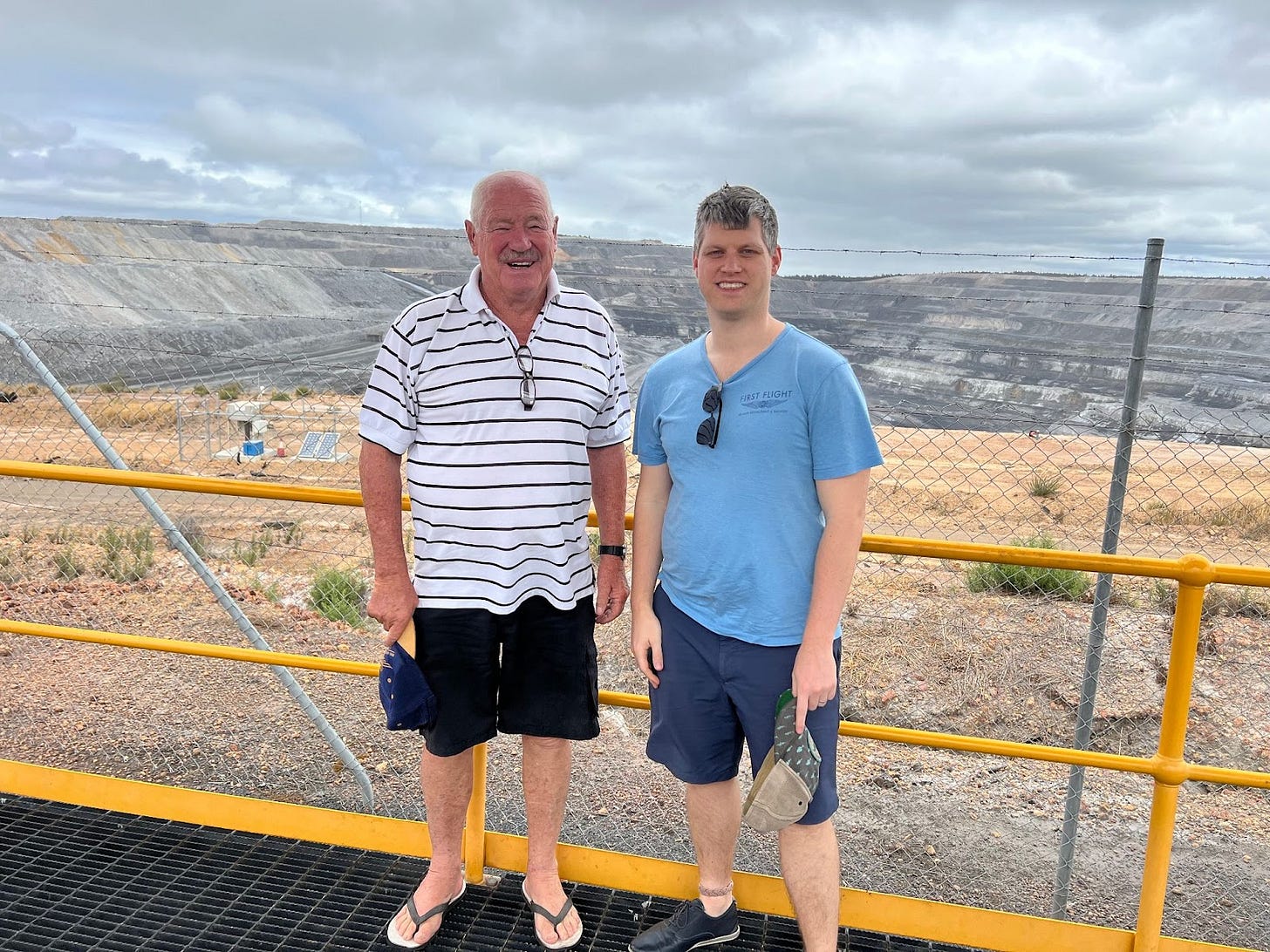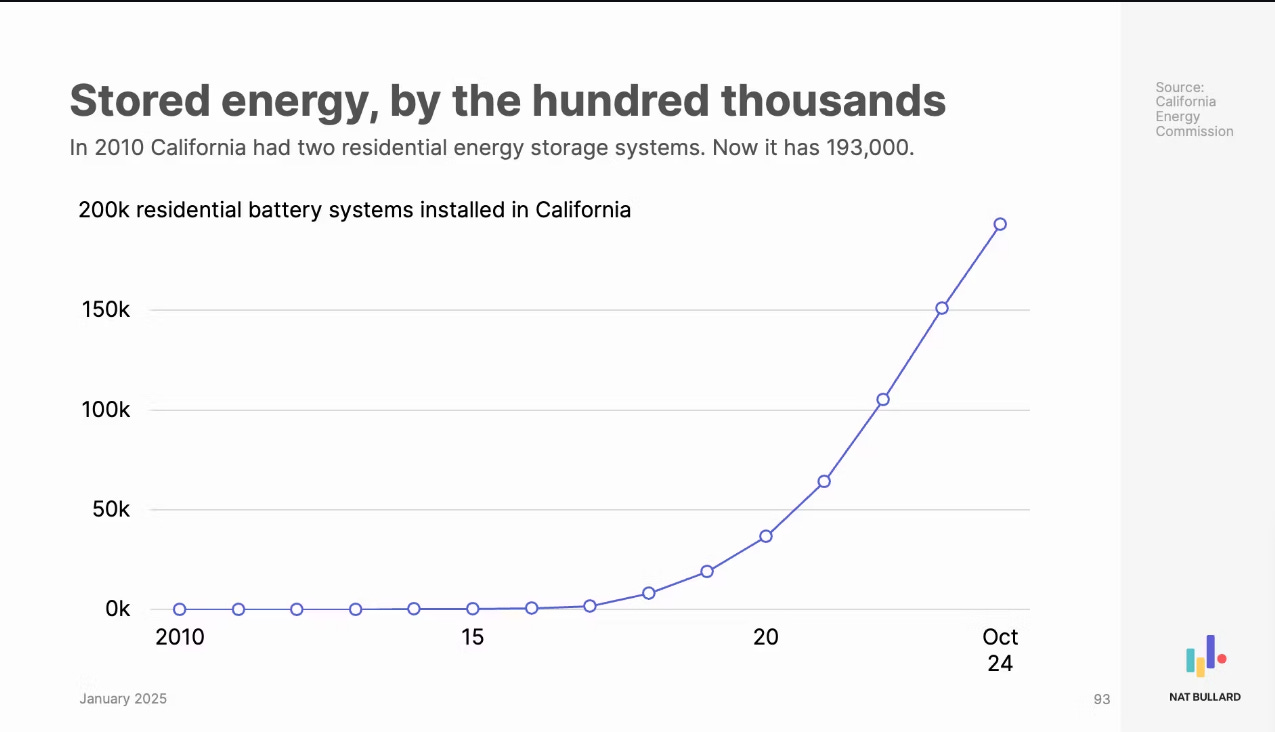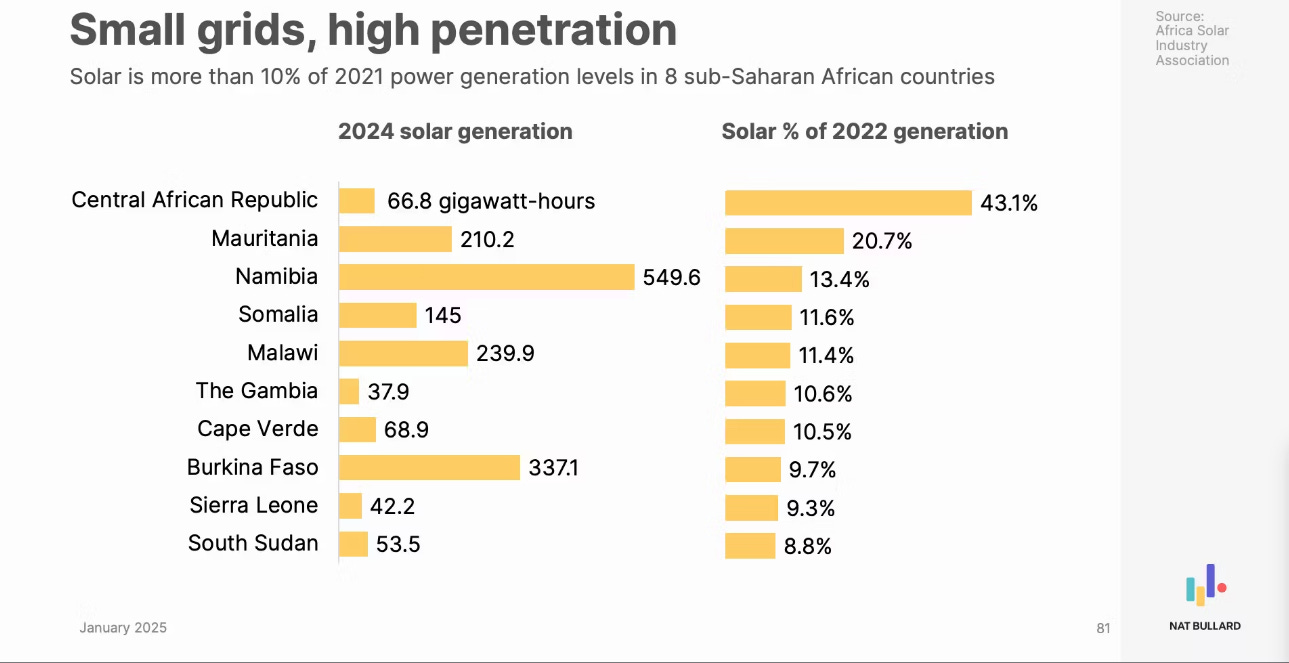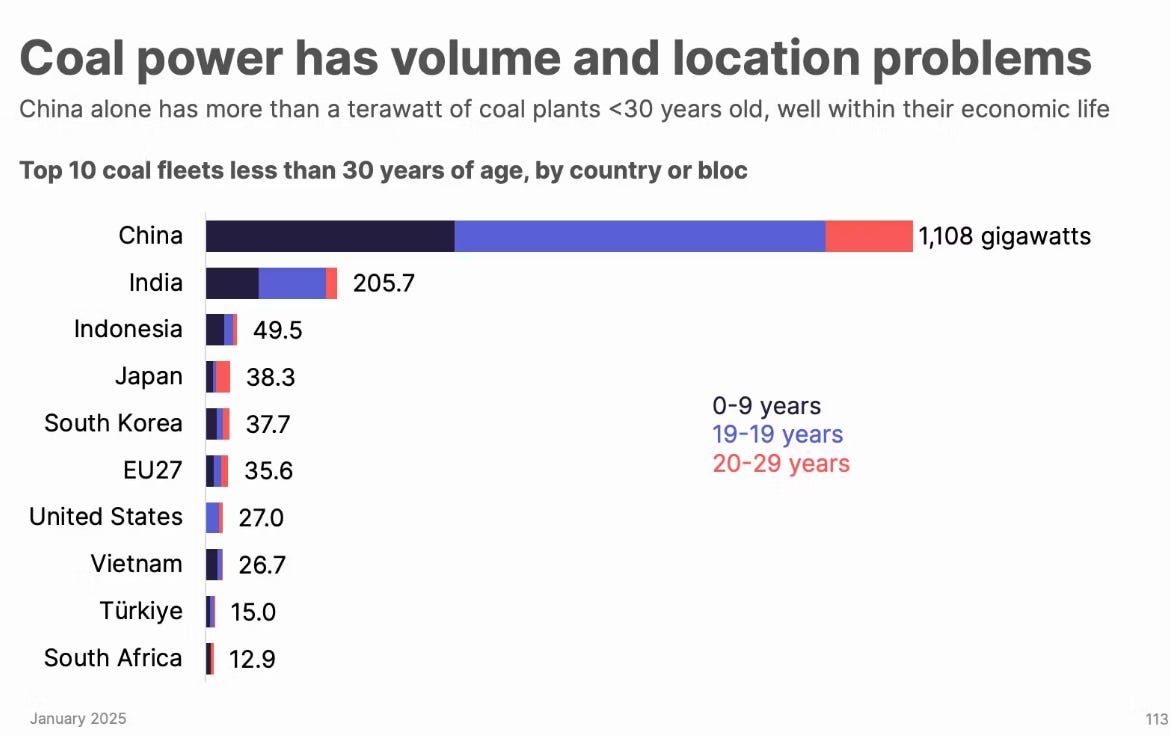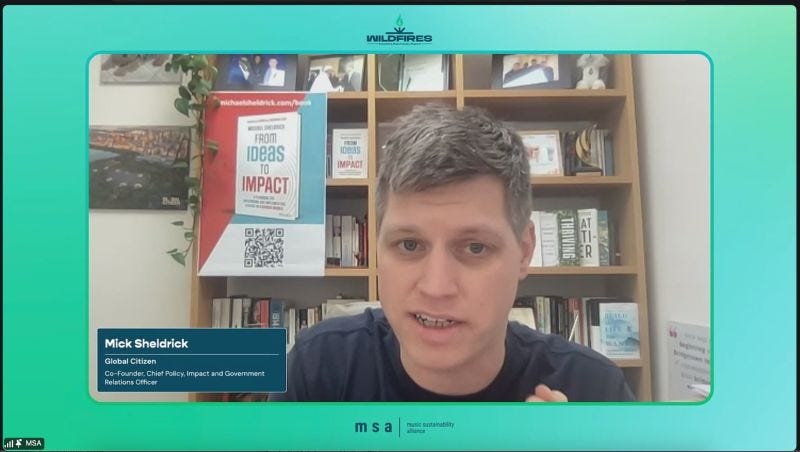Last Chance for Move Afrika Lagos Tix / Rethinking U.S. Foreign Aid / The Weeknd’s Impact / Preparing for Disasters—And a Little Bit of Good News
This week, I cover Move Afrika Lagos, The Weeknd’s impact, and how we can better fund disaster recovery. Plus, my take on U.S. foreign aid and some good news on clean energy.
Dear Friends and Supporters,
I'm writing this on a snowy Sunday here in Brooklyn before heading to Washington, D.C., for a packed week of meetings. If you’re in D.C., we’re hosting a happy hour on Wednesday evening. Email or message me for details. I would love to see you!
Now, onto some updates…
Move Afrika: VIP Tickets for Lagos Still Available!
Mark your calendars—February 25th is set to be an unforgettable night as award-winning global icon John Legend headlines Move Afrika in Lagos! Move Afrika isn’t just a concert—it’s about celebrating Africa’s booming creative economy, driving job creation and entrepreneurship. My colleague Liz Agbor-Tabi and I recently wrote about its potential for Nigeria’s future in Vanguard Media—you can check it out here.
While much of the world’s population is aging, Nigeria’s young population is exploding. By 2050, Africa’s youth will number 1.2 billion. They will need jobs—jobs where they can explore their passions, creativity and ambitions. The old sectors aren’t enough…
The creative industry, however, is built for the future, as World Bank President, Ajay Banga, noted at the Economic Development Assembly in Abidjan last year: Dollar for dollar, the creative industries—along with tourism—generate more jobs than manufacturing. The logic is simple: creativity doesn’t just produce art—it produces entire ecosystems of viable employment, from writers to designers, production crews to event managers, stylists to lighting and sound engineers.
But unlocking the full power of the creative economy will take more than just investment—it will require innovative policy, especially in a world shaped by AI. I recently sat down for an interview with Building Creative Machines on the intersection of creativity, technology, and policy—check it out!
Finally, secure your VIP package and spot at Move Afrika in Lagos! Contact +234 201 330 9299 for tickets, or contact Iphie Chuks-Adizue at iphie.chuksadizue@globalcitizen.org for partnership opportunities.
The Weeknd’s Tour Will Impact Lives Beyond the Stage
Global Citizen is honored to partner with The Weeknd's "After Hours til Dawn" tour, which will make stops in 20 major cities throughout the spring and summer. For every ticket sold, $1 will be donated to support children from vulnerable communities worldwide. Fans can also earn free tickets by taking action with Global Citizen to help end extreme poverty.
Good News Update: A Win for a Coal Town You Might Remember
If you’ve read my book From Ideas to Impact or watched my TEDx Talk (which has somehow passed 100,000 views!), you might recall Collie—a small town in Western Australia (WA) that was once at the heart of the state’s coal industry. For over a century, Collie powered WA’s homes and industries, but as coal becomes less viable, the town has been forced to rethink its future. Unlike many places where coal closures have led to decline, Collie is attempting to take a different path—one built on collaboration, policy entrepreneurship, and investment in clean energy.
This past week, Collie had another win. Tesla and the WA Government announced a new battery remanufacturing facility “to build a battery service, repair and renewal facility for its vehicle, home-sized and electricity grid-scale battery products.” Collie is already home to one of the country’s biggest battery storage projects.
For me, Collie’s story has always been about more than energy. As I wrote in my book, what makes Collie’s journey stand out is that union officials, coal workers, and climate advocates put aside old battles - engaging with people they did not historically agree with or even like - to find win-win solutions. One comment on my LinkedIn captured this community spirit perfectly.
In the [recent Tesla] announcement, the Minister said, “Who would have thought 4 years ago when Covid started, that today we would have an operating battery of this size on the ground behind us.”
We did Minister, we did.
Collie’s Success is Part of a Bigger Shift
Collie’s recent win isn’t happening in isolation—it’s part of a global trend toward cheaper, more scalable, clean energy. Battery storage and solar power are reinforcing each other, with batteries making it possible to store excess solar energy and overcome the intermittency challenge. As deployment increases, costs are dropping fast.
Nat Bullard’s annual decarbonization slide presentation is worth a read for a big-picture view of these trends (I’ve included some standout slides below). In a recent interview on Derek Thompson's podcast, Nat highlighted that battery storage capacity increased by 70% last year—a significant development transforming energy markets worldwide. A great example? A council in England is now using solar and battery storage to power 74 schools, dramatically cutting energy costs.
For those who attended the Global Citizen Festival in Central Park last year, you might recall that—for the first time—we powered the festival entirely through battery storage. It’s another reminder that these technologies are no longer just abstract concepts; they are already shaping how we power everything from schools to concerts to entire cities.
Of course, policy still plays a major role in where investment flows and who benefits. Tesla’s decision to invest in Collie wasn’t random—WA’s government and local community had already made major bets on battery storage, bringing Australia’s largest battery to town. That foundation made it a natural next step for Tesla to set up shop. Smart policies create certainty, allowing investors to commit capital for the long term—but even without policy intervention, the market signals are clear: capital is flowing to clean energy.
Just look at what’s happening in Africa. Even with uncertainty over U.S. policy, investment in African renewable energy is still gaining momentum—driven by economics, not politics. As Mike Silvestrini, co-founder of Energea, put it:
“Who occupies the White House won’t affect renewable deployment—solar, wind, or hydropower—in Africa.”
And, per Collie’s story, policy entrepreneurship will also play a critical role in ensuring people aren’t left behind. There are still thousands of coal-fired power stations operating worldwide, and while solar panels and batteries are scaling rapidly, they don’t automatically translate into jobs for displaced coal workers.
I’ll have more to say on this soon—I’ve just submitted an article on the topic—but this will be a major issue to watch. If not handled properly, it could spark public backlash that slows or even disrupts the clean energy transition. This challenge will be especially pressing in Asia, where, as Nat Bullard’s presentation (below) highlights, coal plants are far younger than those being phased out in other regions.
Getting the Message Right on Foreign Aid
In recent weeks, the U.S. government has paused most foreign aid, putting efforts to fight poverty, respond to disasters, and support global stability on hold. Naturally, I’m a supporter of aid that works—at the core of Global Citizen’s mission after all is ending extreme poverty, and foreign aid plays a key role in saving lives, creating jobs, and strengthening economies. But I also understand why, for many Americans, foreign aid isn’t a top priority—especially with cost-of-living pressures, healthcare, and security concerns at home.
Getting people to care about aid—including taxpayers in other countries that contribute—requires framing it in a way that makes sense for everyone. This has always been a challenge, and history is filled with mixed success in making the case. If you have ideas on how to do this, I’d love to hear them! And even if you already support aid, I’d love to know: why does it matter to you? (And if you don’t, I’d love to hear your thoughts, too.)
For more, Global Citizen has published this explainer, I’ve recorded a video, and I’ve written about it for Forbes. But here are three quick points worth making:
1️⃣ Reviewing Aid is Smart—But It’s Already One of the Best-Performing Investments
Every administration has the right to review spending and cut waste—that’s just smart governance. But Foreign aid makes up less than 1% of the federal budget and has been shown to deliver substantial economic and security benefits when invested wisely. 👉 Example: Research published in a leading economics journal found that foreign aid generates an average 11% return on investment—comparable to infrastructure and education spending.
2️⃣ By Marco Rubio’s Own Test, Foreign Aid Delivers
Marco Rubio says three questions should judge foreign aid. Does it make America safer? Stronger? More prosperous? The answer to all three is yes.
👉 Safer – It stops pandemics, fights terrorism, and prevents costly wars. Example: USAID monitors bird flu in 49 countries—but funding just got frozen, even after bird flu was detected in the U.S. Stopping viruses early costs pennies compared to another COVID-style pandemic.
👉 Stronger – It prevents mass migration and builds useful partnerships. As the saying goes, "You catch more flies with honey than vinegar." Example: USAID funds independent media in Ukraine and Iran—now 9 out of 10 outlets risk shutting down.
👉 More Prosperous – It creates jobs, boosts U.S. exports, and keeps supply chains running. Example: A $72M nutrition program in Nepal just got cut—resulting American farmers lost a major buyer.
I break this down further in my Forbes piece—check it out here.
3️⃣ Aid Isn’t Just a One-Way Street Anymore
Foreign aid isn’t just about “rich countries” helping poor ones—that old model is outdated. More countries are stepping up, not just as recipients, but as co-investors in common solutions.
In my work—whether it’s supporting farmers facing droughts or expanding healthcare access—I’ve seen firsthand how nations across Africa, Asia, and Latin America are contributing their own resources to the same programs the U.S. supports.
👉 Example: In recent years, Brazil and India have expanded their own foreign aid efforts, funding healthcare, disaster relief, and economic development—especially in their regions. While Kenya continues to receive foreign aid, it has also invested in regional development efforts and supports programs in neighboring countries. More developing nations are co-financing programs, shifting the burden from a few wealthy nations to a shared responsibility.
How Music and Finance Collide in the Fight Against Natural Disasters
This past I joined an incredible lineup of scientists, advocates, and music industry leaders at an event organized by the Music Sustainability Alliance, where we discussed the devastating the increased frequency of natural disasters—like hurricanes and wildfires—and more importantly, we tackled what can be done about it.
It was an honor to speak alongside:
🎤 Maggie Baird (founder of Support+Feed)
🌍 Katharine Hayhoe (Chief Scientist, The Nature Conservancy)
📢 Bill McKibben (ounder of 350.org)
🎶 Adam Met (musician & Executive Director, Planet Reimagined)
🎤 Dawn Richard (artist & advocate)
⛪ Rev. Lennox Yearwood Jr. (President & CEO, Hip Hop Caucus)
…along with Sierra Kos, Jennifer Leff, Cathy Runciman, Neel Vasavada, Kelci Zile, and Katie Bain, all working on this important issue.
At Global Citizen, we’re focused on both prevention and unlocking funding for resilience through financial reform.
Prevention is key—solid fire management policies, for example, can significantly reduce the risk of catastrophic wildfires. That’s why, with Re:wild, Global Citizen is mobilizing $1 billion to combat illegal burning in the Amazon rainforest, supporting safer land-clearing techniques and better fire detection. We’re calling on governments, businesses, and philanthropists to support this effort—contributors will be recognized at Global Citizen Festival: Amazonia in November.
But even with the best prevention efforts, disasters will still happen—and when they do, communities need immediate access to funding to rebuild. Outdated financial systems leave them stranded. California, for example, faces over $100 billion in wildfire damages, yet 60% of losses are uninsured, and the state’s rainy day fund only holds $10 billion—a fraction of what’s needed.
Reforming financial systems can change that. Readers of my book might be familiar with how Barbados is working to make itself more resilient, ensuring it has access to emergency funds when hurricanes hit. These kinds of financial reforms will be ever more essential to helping vulnerable communities recover faster when disaster strikes.
Small Switches, Big Impact: Conserving Water at Home
Global Citizen staff recently joined for the latest collaboration with Procter & Gamble to highlight how simple daily choices can help conserve water. Surprisingly, running an ENERGYSTAR® certified dishwasher uses less water than handwashing dishes! By adopting small, sustainable habits, you can make a big impact—for both yourself and the planet.
My Reading List
As always, if you’re enjoying the weekly newsletter format, and want even more, you can subscribe to my Substack here where I publish reviews, lists, and articles regularly.
Till next week,
Mick





